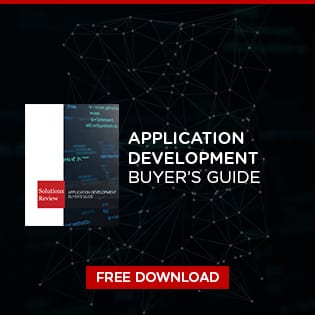Debunking Common Talent Management Myths and Misconceptions

The editors at Solutions Review have compiled a list of common talent management myths and misconceptions and provided explanations to debunk them.
Talent management software is designed to help businesses across industries strategically identify, attract, develop, and retain valuable employees within an organization. It involves various activities—recruiting, hiring, training, performance management, succession planning, and more—to ensure an organization has the talent it needs to achieve its goals and remain competitive.
However, as valuable as talent management can be, it’s not immune to myths and misconceptions that hinder or prevent companies from utilizing it successfully. With that in mind, the Solutions Review editors compiled some of the most common talent management myths we’ve encountered and provided some explanations to “debunk” them.
Common Talent Management (And Why They’re Not True)
Myth 1: Talent management is solely HR’s responsibility.
Talent management is a shared responsibility, plain and simple. While human resources play a critical role, effective talent management requires involvement from leaders, managers, and employees at all levels and departments. It is a collaborative effort to identify, nurture, and harness talent throughout the organization.
Myth 2: Talent management is all about recruitment.
Recruitment is just one component of the more extensive talent management process. The most successful talent management strategies encompass broader activities, including onboarding, development, performance management, succession planning, and employee engagement. Talent management focuses on the entire employee lifecycle, from attracting talent to optimizing their potential.
Myth 3: Talent management is only relevant to large organizations.
If a company has employees, it can benefit from talent management. It’s not a methodology or software category that only larger organizations can benefit from. Small and medium-sized enterprises (SMEs) can benefit as much from effective talent management practices as enterprises. It enables them to identify and develop critical talents, build strong teams, and create a culture of continuous growth, enhancing their competitiveness in the marketplace.
Myth 4: Talent management is all about high potential.
While identifying high-potential employees is essential, talent management should not focus on them exclusively. It should encompass a broader perspective and include the nurturing and development of all employees’ skills and capabilities. Everyone has the potential to contribute significantly to the organization’s success when provided with the right opportunities and support, and talent management is a crucial part of helping employees live up to their potential.
Myth 5: Talent management is expensive and resource-intensive.
Effective talent management does require investment, but it doesn’t necessarily have to be exorbitant, as it is about prioritizing and allocating resources wisely. Many cost-effective strategies—such as providing development opportunities, creating a positive work environment, and fostering a culture of recognition—can yield significant returns for employee engagement and retention.
Myth 6: Talent management is a one-size-fits-all approach.
Talent management solutions or strategies should be tailored to the specific needs and goals of the organization. While there’s no universal template for successful talent management, as each organization operates in a unique context, businesses must align their practices with their culture, strategy, and objectives by considering the diversity of employees and their individual development needs.
Myth 7: Talent management guarantees the retention of top performers.
While talent management can enhance employee engagement and retention, it does not guarantee you’ll retain all your top performers indefinitely. Employees’ career aspirations, personal circumstances, and external factors may influence their decisions to seek new opportunities. Nevertheless, effective talent management practices can increase the likelihood of retaining valuable employees by offering growth opportunities and creating a positive work environment.




















